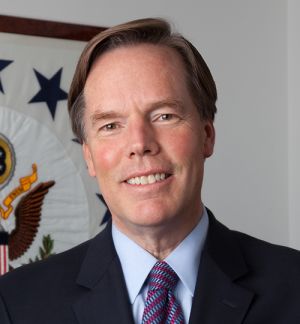Next week marks the 50th anniversary of the Cuban Missile Crisis — arguably the most dangerous moment in modern history. During 13 harrowing days in October 1962, President John F. Kennedy and Soviet Premier Nikita Khrushchev squared off in a test of strategy and wills that nearly ended in a thermonuclear exchange. Hundreds of millions of people might have died in the United States and Soviet Union alone. At the height of the crisis, hardliners on both sides argued for war. Instead, Kennedy and Khrushchev, in a series of dramatic last-minute communications, opted for diplomacy and compromise to avoid the catastrophe of a nuclear conflagration.
What can Barack Obama and Mitt Romney learn from this crisis 50 years later? My Harvard colleague Graham Allison, who wrote the revolutionary account of what happened in his landmark 1971 book “Essence of Decision,” hosted a conference recently at the Kennedy School to reflect on the meaning of the crisis for us today. I took away two big lessons that inform the war and peace challenges our next president could face in an increasingly dangerous international environment.
First, success in diplomacy at the highest levels sometimes requires opening exit doors for your adversary so that he can save face and avoid the conflict ahead. Kennedy did just that in offering secretly to remove American Jupiter missiles in Turkey as a trade for the removal of Soviet nuclear weapons from Cuba. Will Romney and Obama take a similarly imaginative approach to negotiations with Iran? If we are to convince Tehran to halt its nuclear efforts and avoid a war, we may have to help its leaders find a way out — a compromise that will give it a public excuse to stop well short of a nuclear weapon.
Second, Kennedy concluded after the crisis that we had to think about the Soviet people in a fundamentally different way if we wanted to avoid nuclear Armageddon. In his greatest speech, at American University eight months after the crisis, Kennedy advocated building bridges to the Soviets, as the “human interest” of avoiding world war had to eclipse the more narrow “national interest.” He warned Americans “not to see conflict as inevitable, accommodation as impossible, and communication as nothing more than an exchange of threats.” He said we should adopt a “strategy of peace” instead. Who is better placed in our time — Obama or Romney — to find a way to move beyond our many difficulties with our modern-day rival, China, and to avoid a future conflict in the Pacific?
As we look to Nov. 6, we should measure the presidential candidates not just by their ubiquitous campaign commercials but by the qualities they possess that might make the difference between success or failure, war or peace, life or death in a future crisis. Kennedy demonstrated the value of restraint, good judgment, and courage in avoiding war in 1962. Of the two candidates this year, does Obama or Romney have the better command of history, coolness under pressure, and good sense to make the right choice for all of us when the next crisis occurs?
Obama has demonstrated some of these qualities in his adept isolation of Iran, his largely skillful handling of the Arab uprisings, and his bridge-building to allies and partners that has rebuilt US credibility in Europe, especially. Romney’s big foreign policy speech Monday illuminated the challenge he has had in making an impact in foreign policy. His back-to-the-future evocation of American leadership seems right for the Cold War but not nearly sophisticated enough for our very different 21st-century world.
This election can’t be just about which candidate gives the snappiest presentation in a debate and rattles off the most memorable one-liners. We need a strong leader to preserve our power but one who can also avoid the rash rush to war that has, too often, been our reaction to global tests since 9/11. President Kennedy was far from perfect. But his leadership 50 years ago saved us from disaster. The Cuban Missile Crisis reminds us that we must prize above all the qualities of intelligence, leadership, and wisdom in our next president.
Burns, Nicholas. “Cuban Missile Crisis holds lessons for presidential race.” October 10, 2012





